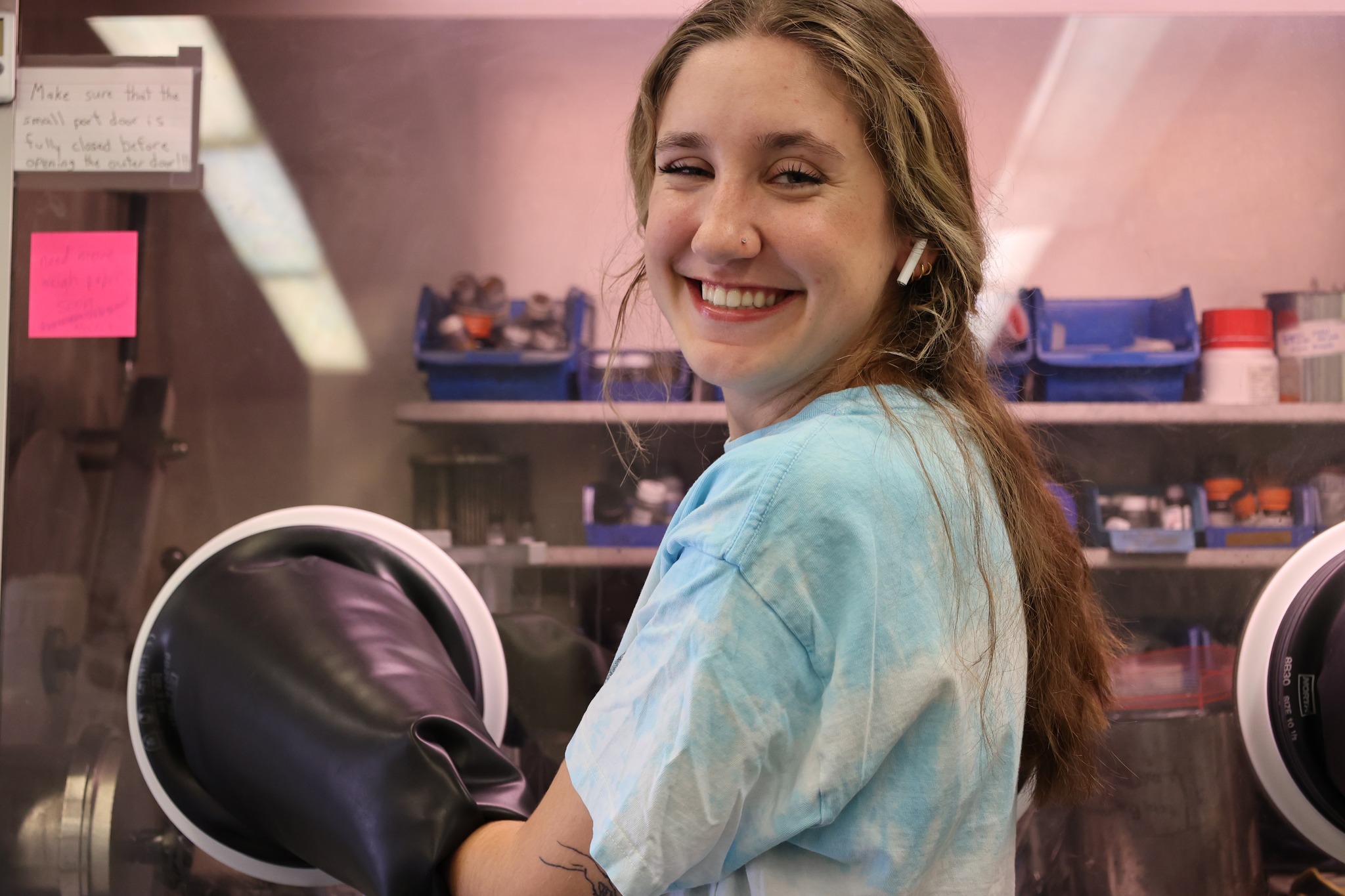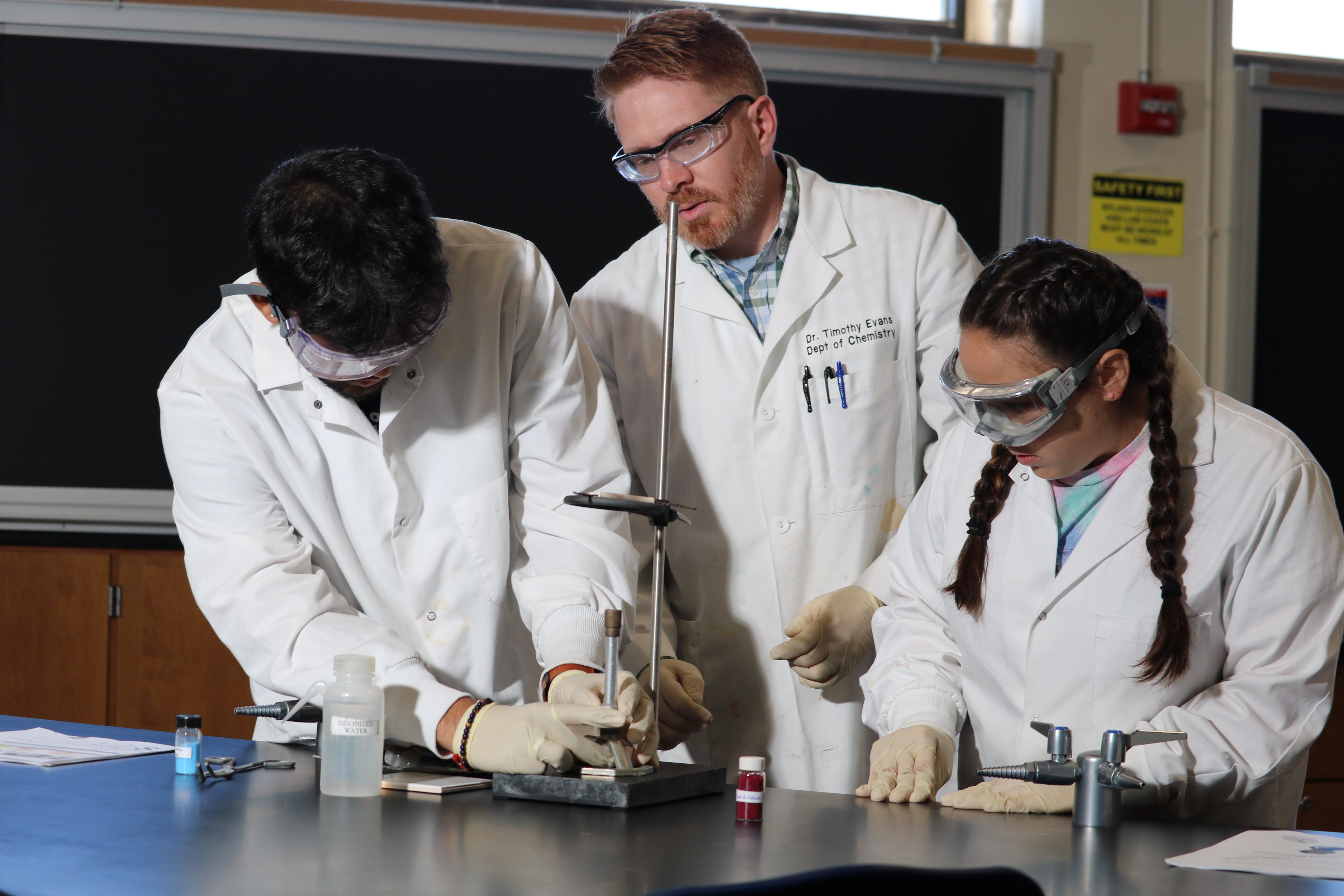Chemistry BS
Earn a B.S. in Chemistry and open the door to a world of opportunities in the dynamic field of chemical sciences. Our program provides a strong theoretical foundation in Organic, Biochemistry, Inorganic, Physical and Analytical Chemistry, supported by essential knowledge in biology, physics and mathematics, preparing you for diverse applications in academia, industry and professional careers.
Through a rigorous curriculum of lectures, hands-on laboratories and research projects, you will develop practical laboratory skills, including experimental design, data analysis and safe laboratory practices. You will learn to apply the scientific method to analyze experimental data with integrity and ethics, communicate scientific outcomes effectively through oral and written methods, and apply your knowledge to solve original research problems, culminating in a capstone project or research thesis.
Mentored by experienced faculty and working in state-of-the-art laboratory facilities, you will gain the critical thinking, problem-solving and analytical skills necessary to thrive in chemistry. Explore specialized areas such as polymer, environmental and pharmaceutical chemistry while preparing to make meaningful contributions to science and society.
Program Information
The Bachelor of Science in Chemistry program is an intensive undergraduate program with course work, laboratory experience and research requirements that prepares students for advanced degrees in the sciences and for careers in allied health professions.
Program Type
Major, Minor
Degree
Bachelor's
Academic Department
Chemistry and Biochemistry
Duration
4 years
Required Credit Hours
123
Modality
In-Person
From A Goldwater Scholar
Research. Lead. Achieve.
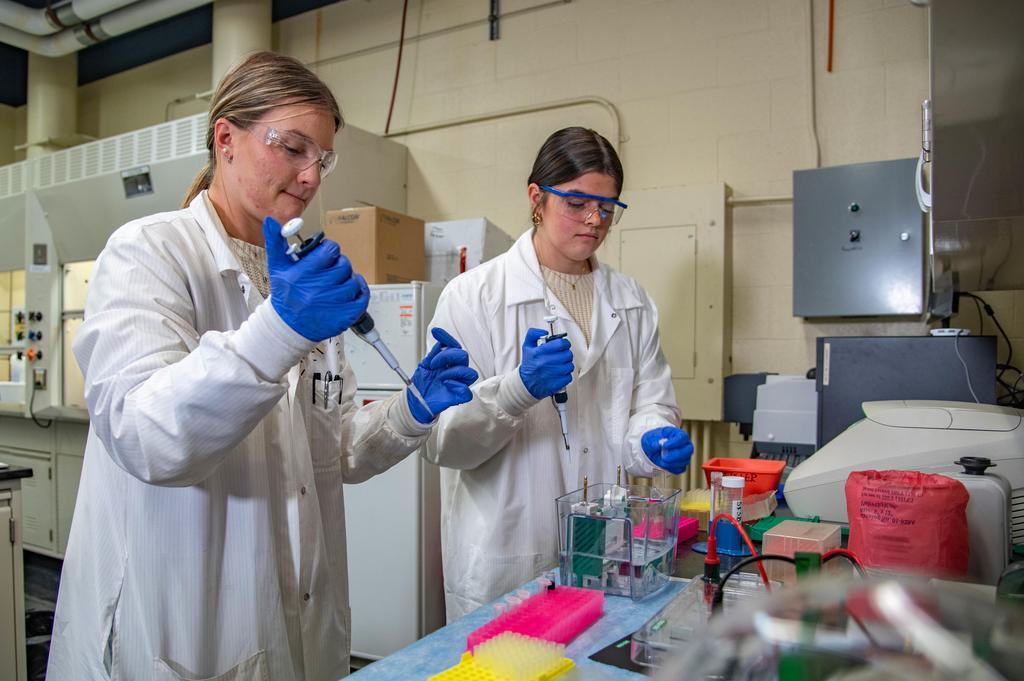
Join A Research Group
Explore interdisciplinary fields in biochemistry, organic, physical, materials, inorganic, analytical, forensic, and biophysical chemistry, all within our state-of-the-art 20,000-square-foot research facility equipped with cutting-edge instrumentation.
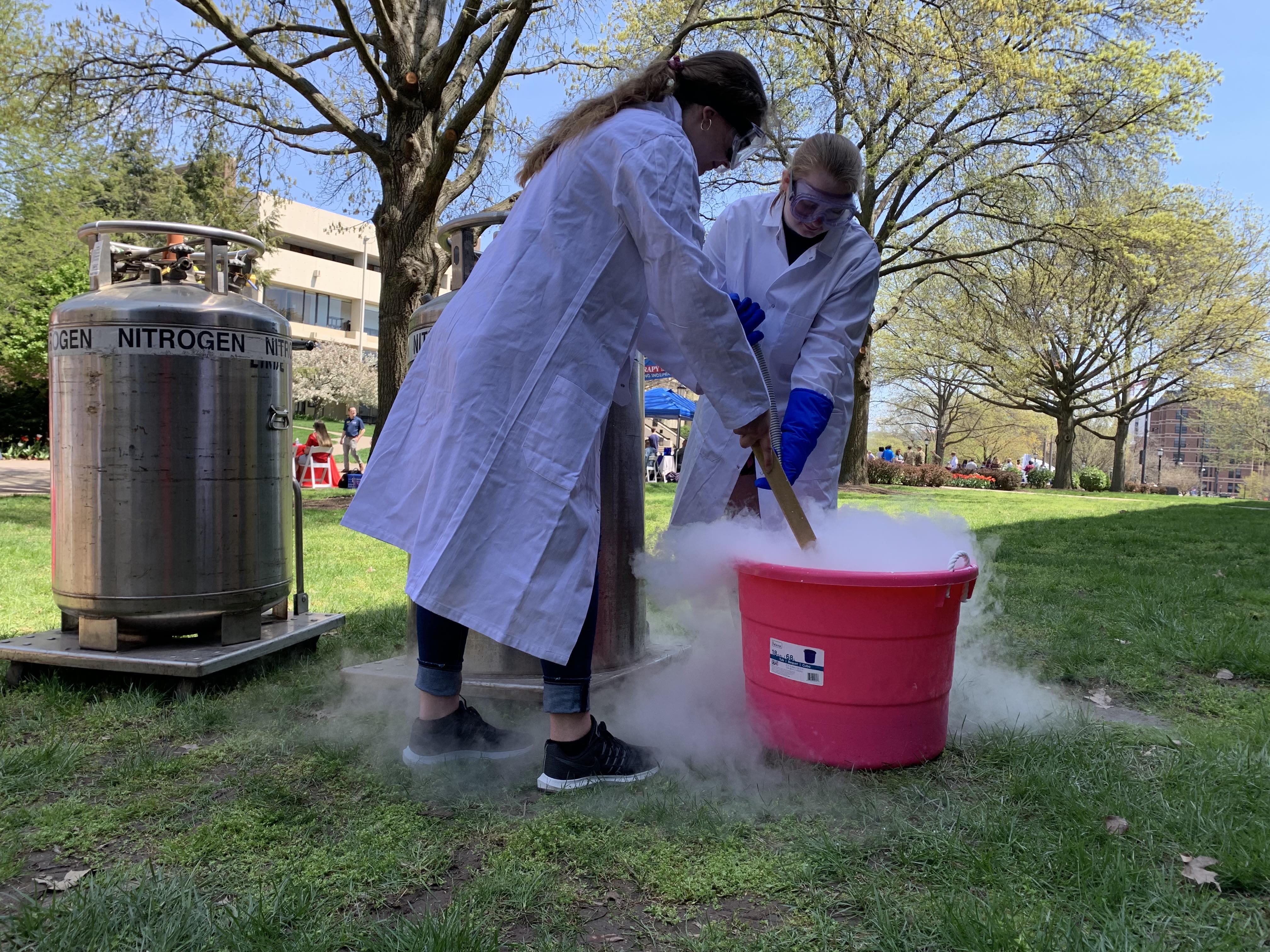
Find Your Club
Explore our clubs and organizations, spanning interests in chemistry, biochemistry, and other STEM programs, including our award-winning ACS Student Organization. You'll have the opportunity to organize events, pursue your passions, build meaningful relationships with students who share your interests, and develop your professional and leadership skills.
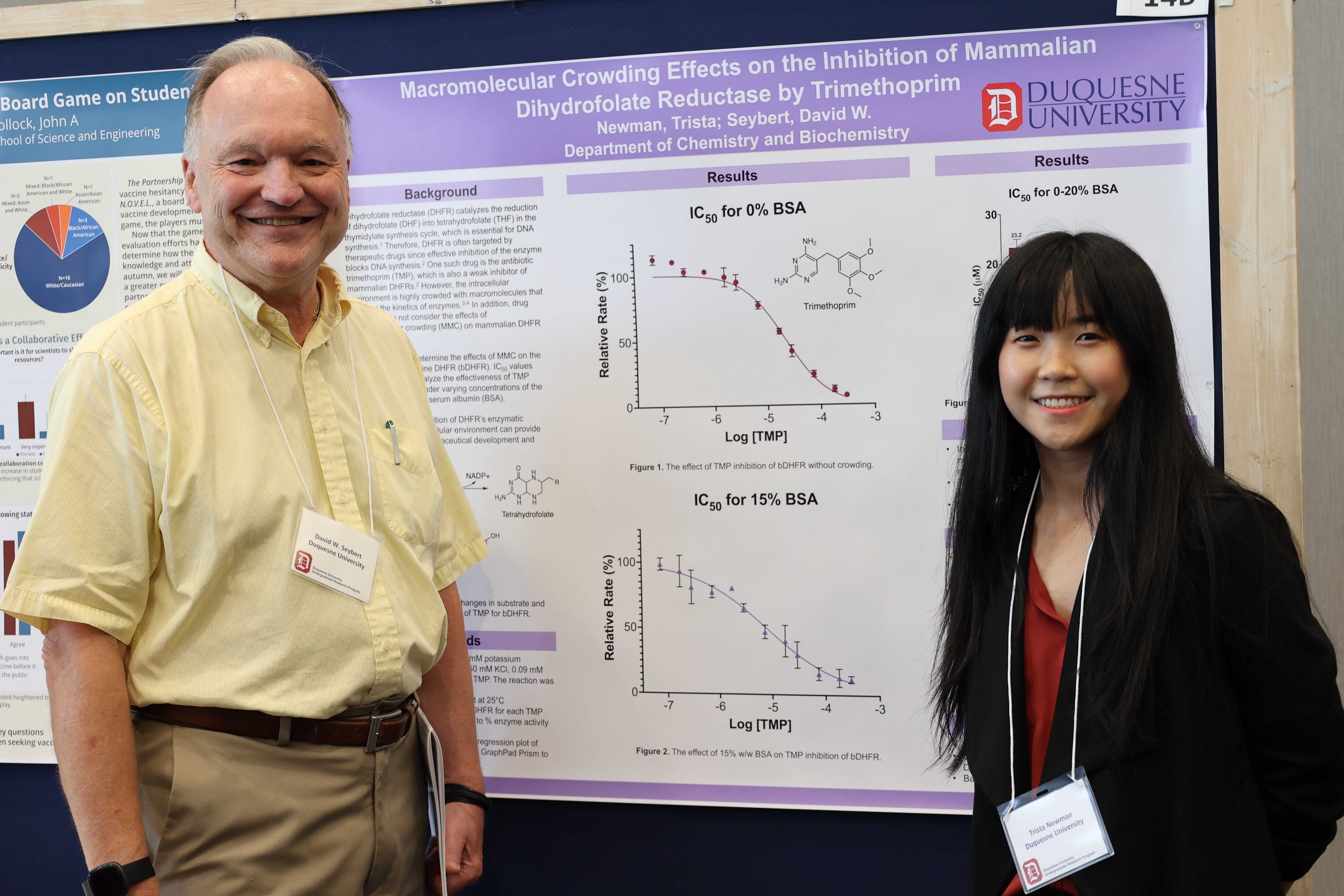
Summer Research Program
The Summer Undergraduate Research program is a paid internship where you'll gain essential research experience for careers in STEM-based fields. Engage in community projects, present your findings at a research symposium, and connect with faculty, industry professionals and peers, while building meaningful relationships within the scientific community.
Advance your career with our BS/MS, MS, or Ph.D. programs in Chemistry. Gain specialized
knowledge, research experience and expertise sought by academia, industry and research
institutions. Engage in cutting-edge projects, explore advanced topics, and collaborate
with expert faculty to drive innovation and achieve your professional goals.Advanced Chemistry Degrees
Questions? Contact Us!
Lexie Vincenty

To assist students in achieving their academic goals within the B.S. in Chemistry
program, we recommend the following course sequence. It is important to note that
BRDG courses can be completed in any order throughout the undergraduate curriculum,
allowing for greater flexibility in scheduling. All prerequisites must be met with
a C or higher. Undergraduate research is highly encouraged. Our department recognizes the value of research and the significant contributions
it can make to the scientific community. To complete a minor in Chemistry, you need to take the following courses: Additionally, you must earn 3 more credits from Chemistry Department courses numbered
300 or above. Students must take four advanced electives. At least two of these electives must be
chemistry or biochemistry electives. The remaining two electives may be chemistry,
biochemistry, or math electives from the approved lists.Suggested Course Sequence
Spring Semester (17 credits)
Spring Semester (16 credits)
Spring Semester (14 credits)
Spring Semester (12 credits)
Elective Offerings
ACS accreditation ensures our undergraduate chemistry program meets rigorous national
standards, equipping students with the knowledge, skills, and experience to excel
as scientific professionals. It also enhances the program’s reputation, attracts top
students and faculty, and prepares graduates for technical careers.
Learning Outcomes
Accreditation



